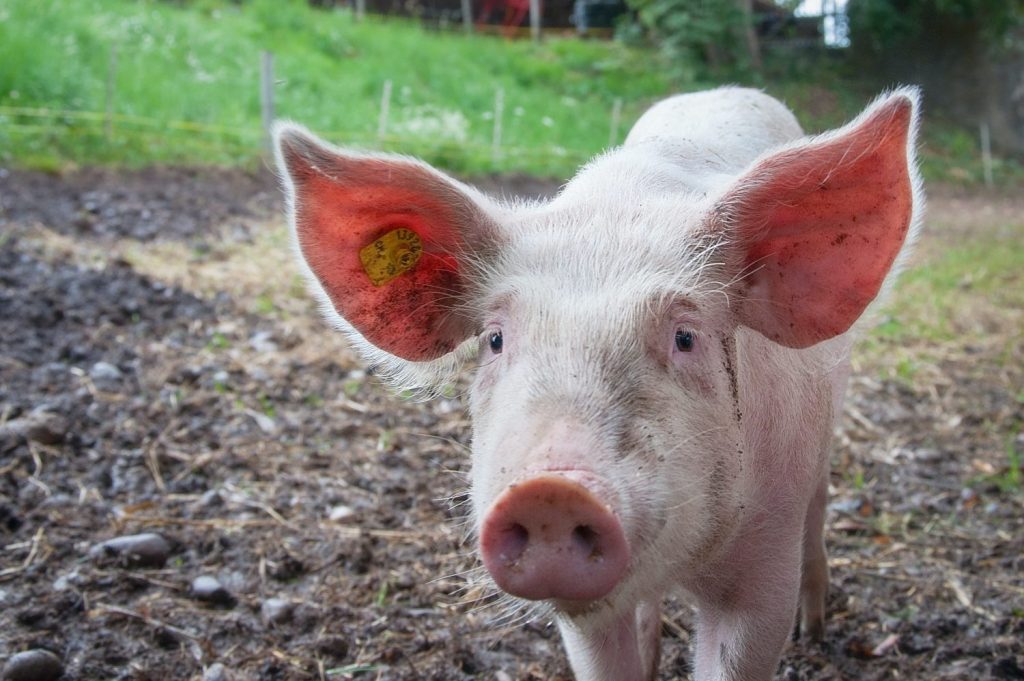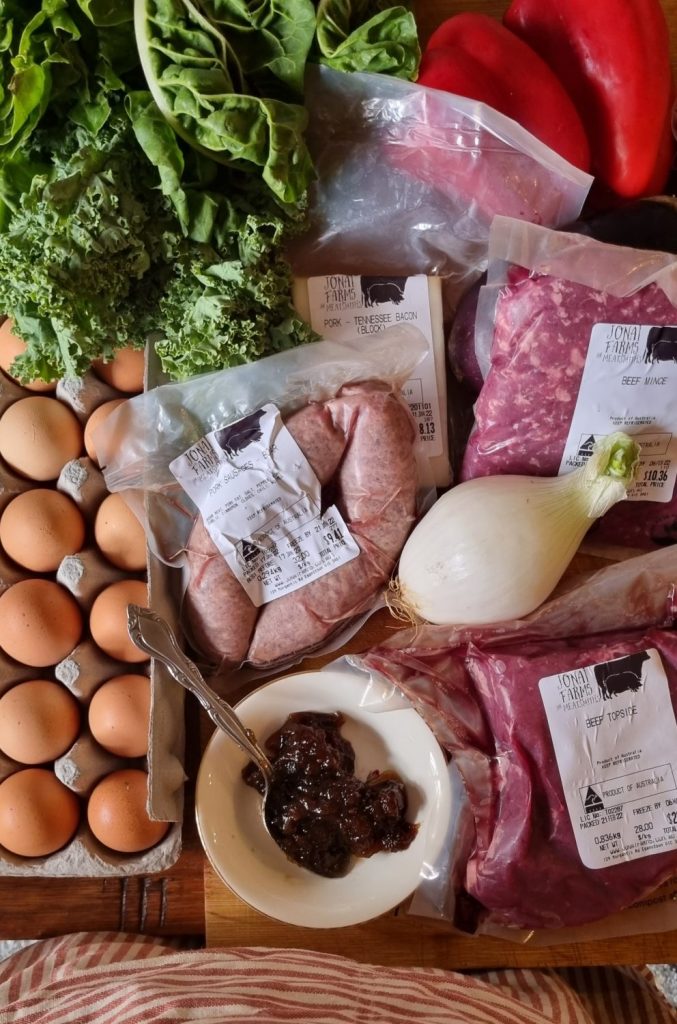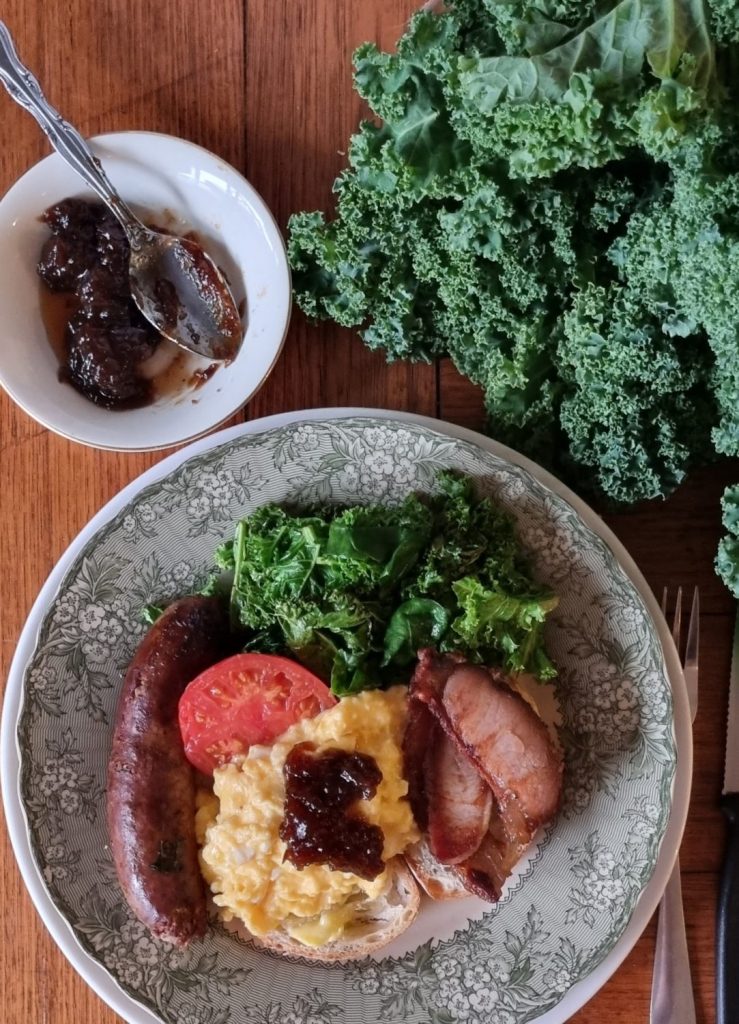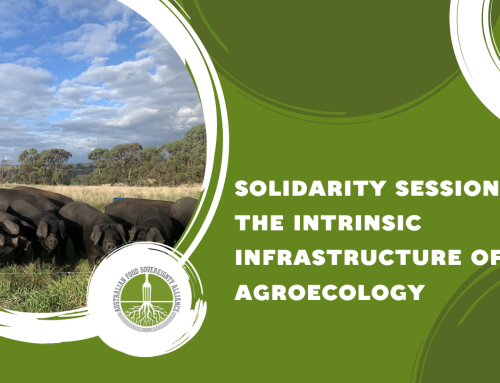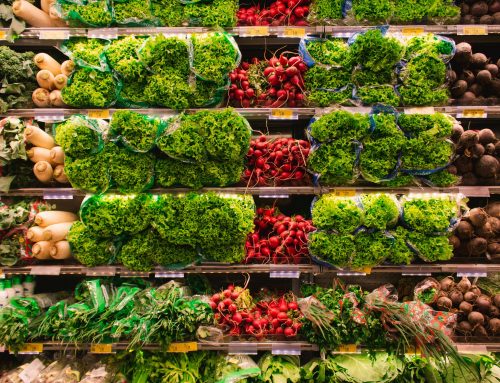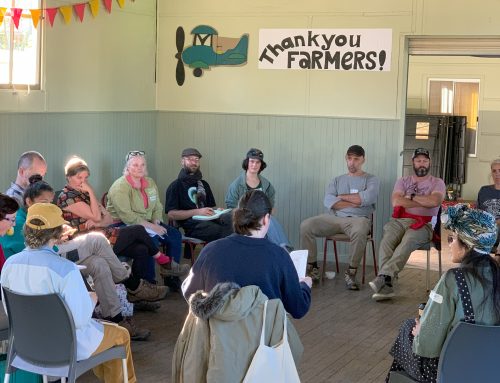Katherine Scott discovered Community Supported Agriculture (CSA) after exploring her options for delicious, quality food made ethically through a transparent process from farm to plate. Here, she shares her story on becoming a CSA member at Jonai Farms on Dja Dja Wurrung Country (Victoria).
I just drove to the outskirts of town to pick up my monthly CSA share of pork and beef from Jonai Farms & Meatsmiths at the local delivery hub.
Last month- my regular bag of meat, with a side purchase of a year’s supply of gorgeous garlic, grown on the farm.
Today- two bags of meat instead of the usual one, because next month’s beef will be skipped in favour of extra this month, due to ongoing abattoir access issues. The farmers that grow, process and deliver our meat have made this decision to best support everyone- not least the animals in question.
I know this because each month I get emails that update me on farm happenings and how they will affect my meat supply. This transparency and accountability is perhaps my favourite thing about purchasing through a Community Supported Agriculture system.
I signed up to the Jonai Farms CSA programme (based in regional Victoria) when my now 8 year old was a babe in arms, looking for ethically produced meat in an effort to distance my meat eating from factory farming, and I’ve learned a lot and ridden a few waves with them over this time. I’ve gone from having it delivered to my front door (in the lucky early days when there wasn’t as much to deliver) to picking it up from a couple of different hubs. I have had the privilege and responsibility of witnessing the realities of running a farm, from issues with feed access and licensing and regulation woes, to exciting new projects. From concerns about numbers to pictures of plentiful romping piglets and lush fields, and through difficult slaughter decisions.
Never have I felt more connected to the source of my food, the real costs involved, and the influences upon it. Short of starting my own home farm (clearly impossible for everyone) I believe it’s the best way I can be directly responsible for, and aware of, my own meat consumption.
I enjoy the announcement of the Christmas Hams at the end of each year. It fills me with gratitude to have one- the number of hams available relating to a tale about the number of animals that will be processed to provide them. A seasonal ritual that makes the ham more important, unlike the ‘unlimited’ nameless hams on the supermarket shelf. An importance that prompts me to use up every last scrap and freeze the bone for soup.
I delight in hearing how the sausages are seasoned from the vegetable patch or through collaboration with other local producers, and also really appreciate the connections offered to other small scale farms. Through our CSA I’ve accessed lamb and duck on occasion.
We pay monthly, by direct deposit, but I’ve considered switching it to an annual payment. I appreciate having options. I have to admit I occasionally quake at the price -we’re not rich- but we consider it a priority. It’s incredible quality, incredibly delicious, ethical meat. We eat better meat, less often. Our farmers deserve the price, and are ethical in their practices, both with the care for their animals and their production. In the rare event that farm occurrences impact the amount I get for my dollar, I consider the extra paid a solid investment in small scale, ethical agriculture.
The supermarket makes it far too easy to turn your nose up at a price hike on the roast you want to grab for dinner, or to pretend that cows only have rumps or chickens, breasts. Or to pretend that there’s not a farmer on the other side of the shelf, working themselves silly for meagre margins.
Receiving a CSA share forces you to appreciate the whole animal and the wider realities of agriculture, be it animal or plant based. The benefits are many. The only necessity (for a monthly meat CSA at least) is a large freezer.
My next goal is to attend a slaughter day and participate in processing a pig from start to finish.
Not an obligatory part of a CSA of course, but an opportunity to go the whole distance with our commitment to knowing our food.
